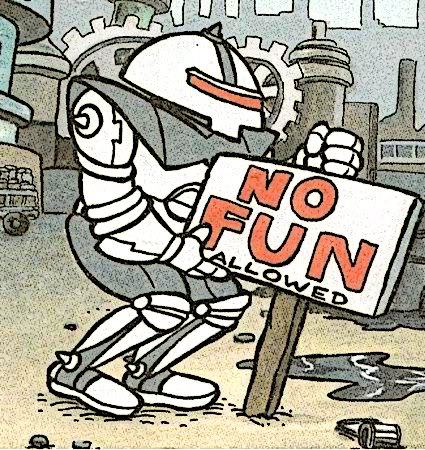killer rin
Member
http://www.citynews.ca/2016/03/08/h...ohrc-calls-for-end-to-sexualized-dress-codes/News Article said:In recognition of International Women’s Day, the Ontario Human Rights Commission (OHRC) made a special announcement today about female and transgender rights in the workplace.
The OHRC updated its code of conduct to target mandatory sexualized female-only requirements, including wearing high heels, make-up or exposed skin as a part of workplace aesthetics and dress code.
OHRC’s Chief Commissioner Renu Mandhane said this is an issue they have been working on for over 20 years.
“This practice persists despite guidance by the commission,” Mandhane said. “We’re hoping to spur employers to think about their dress codes and be proactive so women don’t have to file complaints.”
The update specifically called out the restaurant, bar and massage therapy industries to beware of discriminatory demands of their female employees. Mandhane said since these industries are filled with young women working precarious jobs, sexual harassment and/or sexist policies don’t get reported as they should.
OHRC’s code of conduct states employers must be able to prove all sex-based dress code differences are legitimately necessary for the job. Where this cannot be shown, differences will be deemed discriminatory. Employers also cannot expect or coerce women to dress provocatively for clients.
http://www.ohrc.on.ca/en/news_centre/ohrc-calls-end-sexualized-workplace-dress-codes-discriminatePress Release said:Toronto — In recognition of International Women’s Day, the Ontario Human Rights Commission (OHRC) is calling for an end to sexualized dress codes that discriminate against female and transgender employees. The OHRC makes the call in a policy position on gender-specific dress codes released today.
“Employers must make sure their dress codes don’t reinforce sexist stereotypes,” said OHRC Chief Commissioner Renu Mandhane. “They send the message that an employee’s worth is tied to how they look. That’s not right, and it could violate the Ontario Human Rights Code.”
While International Women’s Day is an opportunity to celebrate the achievements of women, unequal treatment is still a daily challenge. This treatment is often visible in bars, restaurants and other services that require women to dress in high heels, tight dresses, low-cut tops and short skirts. These dress codes persist across the restaurant industry, despite human rights decisions that have found them to be discriminatory. They may make employees more vulnerable to sexual harassment, contribute to discriminatory work environments and exclude people based on sex, gender identity or expression and creed.
“Excellent customer service doesn’t have a cup size,” said Kathy Laird, Executive Director of the Human Rights Legal Support Centre. “I hope women will call us for legal help if cleavage is deemed an essential skill in their workplace.”
The OHRC provides resources and policy guidelines on human rights and dress codes online.
Discriminatory dress codes are just one area where there is a significant risk of discrimination. The OHRC continues to work on other issues facing women and transgender people in Ontario. Go to our website for information on the OHRC’s work on sexual and gender-based harassment, violence against Indigenous women (including our call for an inquiry into Murdered and Missing Indigenous Women) and pay equity.
So, I posted this in the Canadian Politigaf thread earlier, though I think its large enough to warrant its own thread. Essentially, yesterday the OHRC announced that they are going to begin really cracking down on the oversexualization of workplace dress codes within businesses in Ontario; making references to restraunts in particular.
This comes in the wake of the CBC marketplace video (Restaurant dress codes: Should dressing sexy be a job requirement?) on the subject from a couple of weeks ago which found that restaurants in particular had been making some pretty discriminatory demands which in some cases has lead to health problems for awhile now.
So, what does Gaf think. Good? Bad? Let businesses be businesses?


